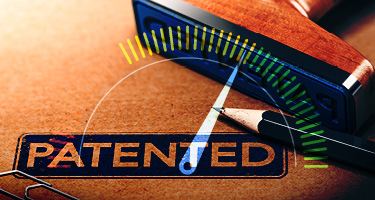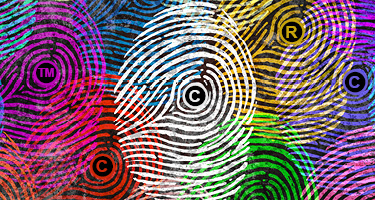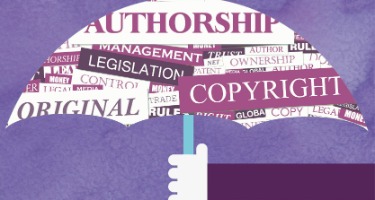Marketing a product as “Made in the USA” or “Made in America” can provide a competitive advantage to companies using the designation. Some view the designation as signifying a safer or higher-quality product. Many consider the act of purchasing such products patriotic—supporting jobs and industry at home rather than overseas. Because of these potential competitive benefits, there are a number of legal restrictions that apply when a marketer decides to present a product as having been made in the United States. This article briefly discusses when a product may be marked “Made in the USA.”
The U.S. government has passed regulations addressing “Made in the USA” designations. And competitors or consumers who are harmed by improper markings may seek redress under state and federal law governing false advertising and unfair trade practices. However, different tests apply to each of these sets of laws.
The Federal Trade Commission's "All or Virtually All" Standard
The Federal Trade Commission (the “FTC”) regulates the use of “Made in the USA” and similar designations on labels as it relates to selling, advertising, and offering products for sale in interstate commerce.[1] To use a “Made in the USA” marking, the product must be “all or virtually all” made in the United States. There is no bright-line rule to establish when a product is “all or virtually all” made in the U.S., and the FTC evaluates each use on a case-by-case basis.[2] A product that satisfies this “all or virtually all” standard “will ordinarily be one in which all significant parts and processing that go into the product are of U.S. origin.”[3]
As a minimum threshold, the FTC requires that the final assembly or processing of the product take place in the U.S.—the product must have been last “substantially transformed” in the U.S.[4] Beyond this minimum threshold, the FTC considers a list of non-exclusive factors, including “the portion of the product’s total manufacturing costs that are attributable to U.S. parts and processing; and how far removed from the finished product any foreign content is.”[5] The FTC will also take into account the nature of the product along with the relevant consumers’ expectations of the product.[6]
As to the proportion of manufacturing costs attributable to U.S. parts and processing, there is no fixed point where a product finally becomes “all or virtually all” made in the U.S. Instead, the FTC will evaluate the totality of the circumstances, balancing all relevant factors.[7] The FTC will also evaluate how far removed in the manufacturing process the foreign content is from the final product. “Foreign content that is incorporated further back in the manufacturing process . . . will often be less significant to consumers than . . . a direct input into the finished product.”[8] In this inquiry, the FTC employs a reasonableness test.
The FTC provides two examples of products with foreign content to illustrate the analysis. In a complex product like a computer, it is likely insignificant that imported steel is used to make one part of a single component—such as the frame of the floppy drive. This is because the steel likely constitutes a very small portion of the total cost of the computer and because the relevant consumers are less likely concerned about the origin of materials that are several steps back in the manufacturing process. However, in the case of a wrench or a pipe, for which steel constitutes a more direct and significant input, the fact that imported steel is used is a more significant factor in determining whether the product is “all or virtually all” made in the USA.[9]
The FTC clarifies that the origin of raw materials in a product does not automatically determine whether a product is “all or virtually all” made in the U.S. For instance, where gold in a gold ring is imported, the “Made in the USA” designation is likely inappropriate based on the significant value of the gold, the fact that gold is only one step back in the process, and the fact that gold is such an integral component of the final product. However, where petroleum is imported to produce the plastic casing of a clock radio, the designation may still be appropriate because the petroleum is sufficiently removed from the final product, is a relatively insignificant input, and makes up a much lower proportion of the total cost of the final product. [10]
Marketers may also use qualified designations to avoid misleading consumers. The FTC demonstrates how the designation may be clarified to avoid being misleading –
A computer imported from Korea is packaged in the U.S. in an American-made corrugated paperboard box containing only domestic materials and domestically produced expanded rigid polystyrene plastic packing. Stating Made in USA on the package would deceive consumers about the origin of the product inside. But the company could legitimately make a qualified claim, such as “Computer Made in Korea — Packaging Made in USA."[11]
The FTC may impose fines against those who use misleading designations on their products. The Commission may also enjoin a party from selling mismarked products, require that mismarked products be removed from shelves, or require the seller to provide supporting evidence before it can use designations of origin in the future.
Standard for False Advertising/Unfair Competition- Misleading Relevant Consumers
Companies that have reason to believe a competitor is falsely representing its products as made in the USA have a remedy under federal and state false advertising and unfair trade practices laws. The federal Lanham Act provides a cause of action for false advertising and unfair competition. Any person who uses a designation in commercial advertising or promotion that misrepresents the geographic origin of the product is civilly liable to anyone who is damaged thereby. [12]
For Lanham Act claims, courts have generally rejected application of the FTC Policy to evaluate a particular “Made in the USA” designation.[13] Instead, the injured party must show that the designation is either literally false or that it is misleading to relevant consumers.[14] The designation may be proven literally false if every part of the product and every step in the manufacturing process is in another country. Alternatively, and more likely, the plaintiff will need to demonstrate the designation is misleading to consumers based on the particular components and the production process. This is often difficult to prove and may be accomplished by commissioning a professional consumer survey.
Once a false or misleading designation is proven, the plaintiff will then have to prove that the designation influences the consumer-purchasing decision. If being made in the U.S. does not matter to the product’s consumers, the plaintiff cannot prevail. In that case, the false or misleading designation would not generate the type of competitive advantage necessary to recover for injuries under the Lanham Act.
Takeaway for Marketers
When evaluating whether a product may be marked “Made in the USA,” it is important that marketers conduct a reasonable inquiry into whether the product is “all or virtually all” made in the United States. The inquiry must be guided by reasonableness: Marketers need to inquire far enough back into the production process that a reasonable marketer would expect to have accounted for any significant foreign content. At the very least, marketers should ask their suppliers for the percentage of U.S. content in any component used in their final product—though “reasonableness” may require more, depending on the product. There must also be a reasonable basis for concluding a product is “all or virtually all” made in the U.S. An unreasonable construction of the facts to reach the desired conclusion will not suffice.
Marketers are advised to document and keep record of the inquiry so the designation can be substantiated, whether to the FTC or in response to a lawsuit. Marketers should revisit the inquiry occasionally to stay apprised of changes in the production process that might render a previously appropriate designation misleading. It may be wise to implement an intra-company communication policy so changes to the production process will be relayed to those making marketing decisions.
If it remains unclear whether a “Made in the USA” designation may be used, marketers might consider using a qualified designation to signify the product is not entirely of domestic origin —such as “Assembled in the USA of U.S. and Imported Parts.” However, qualified designations can also be misleading, so marketers must take care to ensure their representations are accurate and justifiable. The more complex the production process, the more difficult the determination of whether the designation is appropriate. But the complexity of the inquiry is no excuse for using a misleading designation. Ultimately, marketers should seek the advice of experienced counsel if there is any question as to the propriety of a “Made in the USA” designation.
This article is not intended to provide legal advice. Always consult an attorney for legal advice for your particular situation.
[1] 15 U.S.C. § 45a. In 1997, the FTC issued a policy statement concerning such designations that expresses its enforcement position.See ‘Made in the USA’ and Other U.S. Origin Claims, 62 Fed. Reg. § 63756-01 (Federal Trade Commission, Dec. 2, 1997).
[2] Id. at 63768–69.
[3] Id. at 63768.
[4] Id.
[5] Id.
[6] Id.
[7] Id. at 63769.
[8] Id.
[9] Id.
[10] Id.
[11] See Complying with the Made in the USA Standard, at 11 (FTC Dec. 1998), available athttps://www.ftc.gov/system/files/documents/plain-language/bus03-complying-made-usa-standard.pdf.
[12] 15 U.S.C. § 1125(a)(1)(B).
[13] See, e.g., Honeywell Int’l Inc. v. ICM Controls Corp., 45 F. Supp. 3d 969 (D. Minn. 2014).
[14] See, e.g., Cashmere & Camel Hair Mfrs. Inst., 284 F.3d 302, 311 (1st Cr. 2002).































